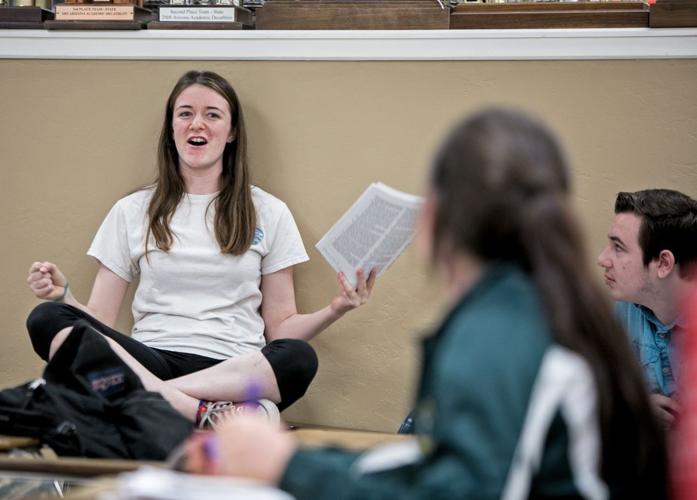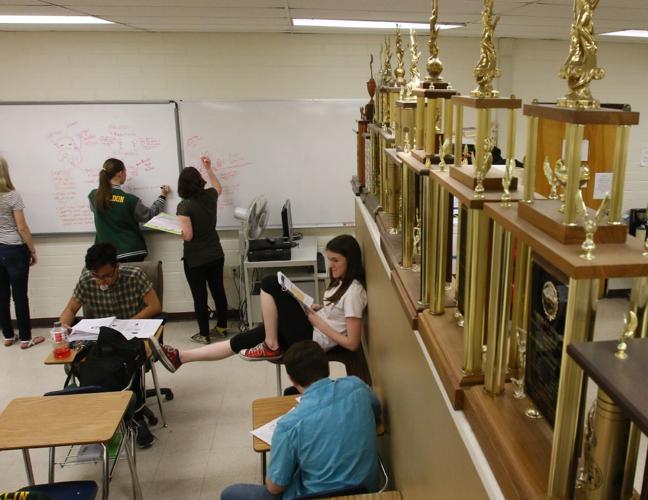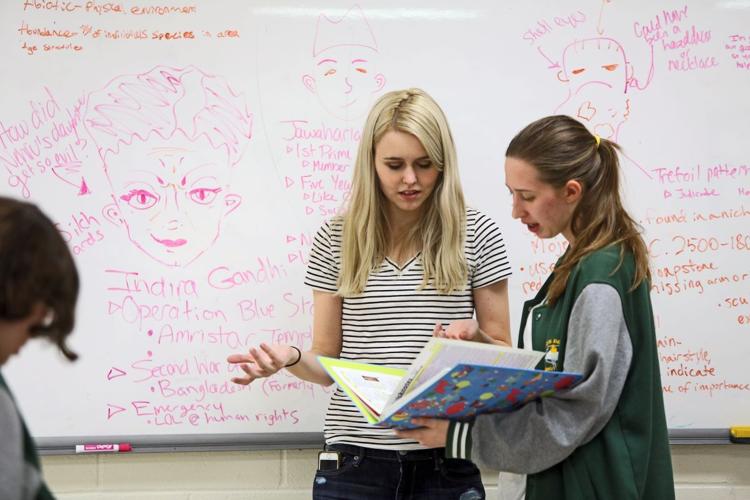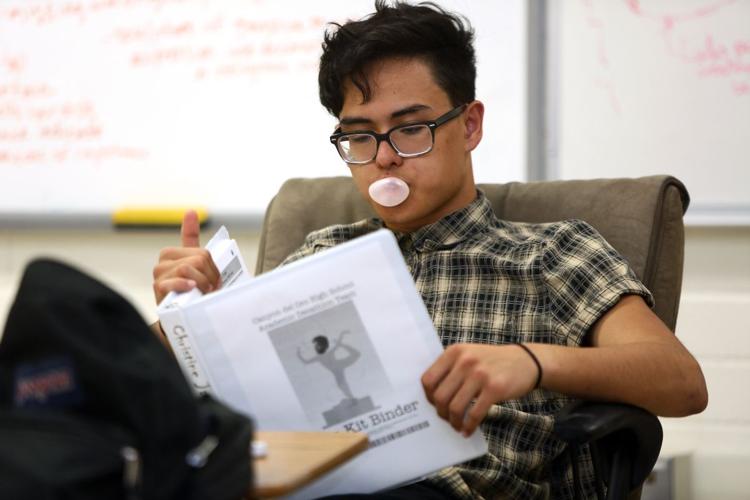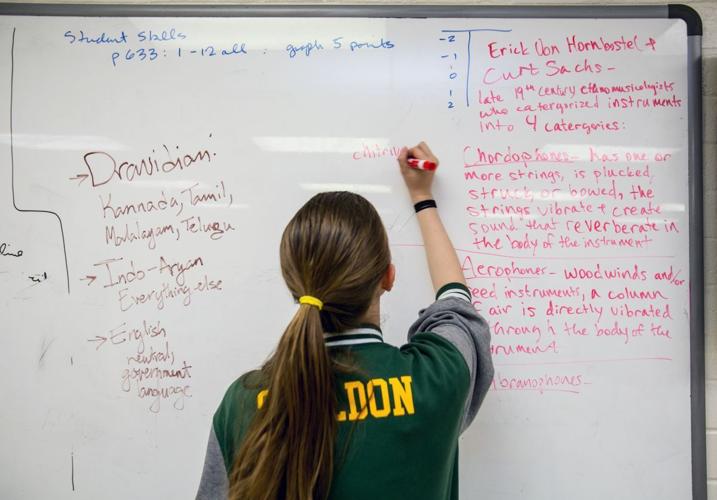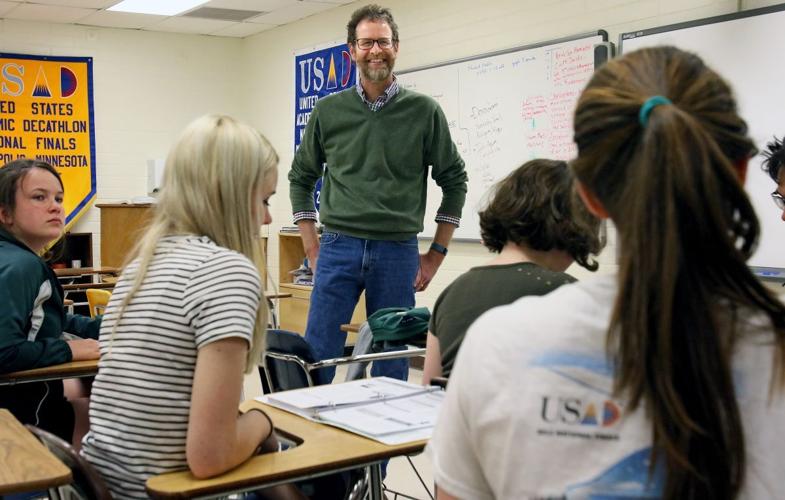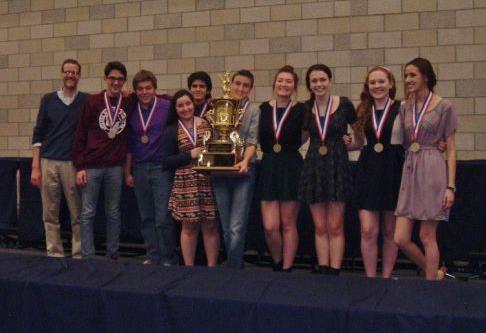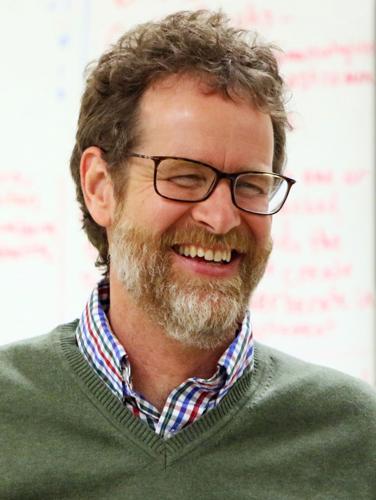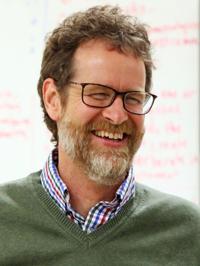Chris Yetman’s classroom at Canyon del Oro High School was bustling Thursday after school.
Three girls have taken to drawing a mysterious shape on the whiteboard, which their teacher later said was a rendering of a Buddhist statue from more than 4,000 years ago. Two boys were either dancing or wrestling and others shared cupcakes as they chatted.
These nine students make up the school’s academic decathlon team, which won the state championship two weeks ago. They will head to Alaska in late April to represent Arizona in a national competition.
The students were relaxed Thursday as they studied and practiced, but leading up to the state championship, the atmosphere was not so easygoing, said Yetman, their coach.
“The tension was very, very noticeable leading up to state,” he said.
The competition topic this year is India, he said. The students have to master a nearly 800-page book with information about India’s art, music, literature, math, economics, social sciences and science. On top of that, they have to be able to write essays, be interviewed by a panel and give speeches.
Canyon del Oro, in Oro Valley, has won six state championships in the past decade. Those winning efforts were all led by Yetman, a veteran math teacher with 28 years of experience. The Amphitheater district school has won state championships in 2006, 2009, 2011, 2014, 2015 and this year.
“We have managed to engender an environment of work and success,” the coach said.
It’s not unusual for a school to have long winning streaks, said Anne Edelstein, the state director for the Arizona Academic Decathlon Association. It’s happened before: Mountain View High School in Mesa won eight state championships between 2002 and 2012.
But what makes CDO’s team different is the students’ dynamic and positive energy, she said.
“They really enjoy what they do,” she said. “It’s kind of fun to see that, even though they are very serious about what they do in terms of curriculum and their studying. They can still have a good time and enjoy themselves.”
Academic decathlon is an all-year-long affair, Yetman said. Regionals are in February; state championships are in March and nationals in April. The team begins preparing in August or earlier.
All team members and other students who are interested are enrolled in a morning course dedicated to preparing for academic decathlons. The nine students who make the team also show up for after school practices for two hours every school day.
They participate in practice scrimmages with other schools and are quizzed and given assignments on sections of the giant book, which is formally called the “resource.”
There is a lot of preparation that happens as a group, Yetman said. A lot of work also has to happen outside the classroom and practices. Students have to be committed to studying the material by themselves, too.
“This group has been very, very good about committing,” he said. “That’s why we won.”
Sarah Spurlin, a senior who has been on the team since her sophomore year, said she remembers feeling under pressure for three days before the state championship. She was glued to the resource material, reading the same sentences over and over.
Her teammates have been her “support system” during those times, she said.
“These people are my family,” she said of her team. “This room is a home away from home for me.”
For Sarah Sheldon, another senior on the team, academic decathlon helped her find new studying methods and reasons to try hard.
“I had none of those before I came into this year’s academic decathlon,” she said. To prepare for the state championship, she said she made at least 500 flash cards. She reckons she’d make another 1,000 to prepare for nationals.
“Even though it occupies a whole bunch of my time, it doesn’t feel like it,” she said.
The CDO team is not overly ambitious to win the national competition. The teacher said he’s aiming for top five; Spurlin said top three.
Top academic decathlon teams often study up to six hours a day and compete among themselves intensely, Yetman said.
“I would not make my students do that.”
He doesn’t want the experience to be just about studying hard and winning, he said.
“There’s more to this whole thing than winning,” he said. It’s also about being a part of a closely knit team, making memories and learning valuable skills that students need in college and life in general.
And it’s also about fun, he and his students said.
Yetman said he’s there to figure out the logistics and convince students of their potential. Fun is a natural consequence.
“I want to be a facilitator to help them achieve what they are capable of,” he said.


